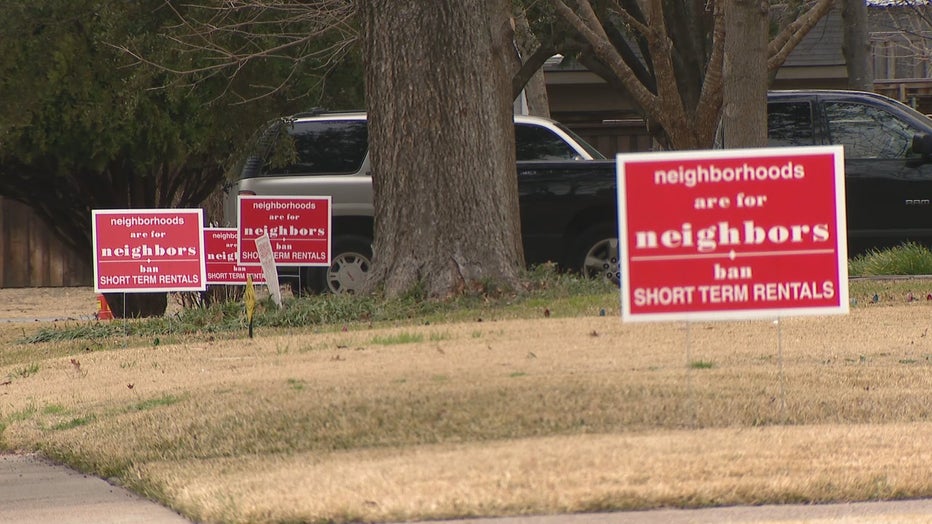Texas law unclear if Dallas City Council can ban short-term rentals in certain neighborhoods
Texas law unclear if Dallas City Council can ban short-term rentals in certain neighborhoods
Short-term rentals are still relatively new, so the case law is continuing to be written, and what happens to Texas law could depend on what cities like Dallas do.
DALLAS - Members of the Dallas City Council want to know whether it’s legal to ban short-term rentals in some neighborhoods.
If a ban happens, it could come with big economic consequences for people who own short-term rentals.
Short-term rentals are still relatively new, so the case law is continuing to be written, and what happens to Texas law could depend on what cities like Dallas do.
"Short-term rentals are good for Dallas and they're good for neighborhoods," said Amy Davis, who owns two short-term rental homes in Dallas.
One of Davis’ short-term rentals is in the single-family neighborhood of Edgemont Park.
"Use a monitoring system, Noise Away. Without recording anything, it alerts us if guests get too loud so we can alert them turn it down," Davis explained.
RELATED: Dallas City Council considering ban on short-term rentals in certain neighborhoods

But despite her best efforts to be a good neighbor, people in homes surrounding her rental have blanketed the neighborhood with red signs asking the Dallas City Council to ban short-term rentals in neighborhoods zoned as single-family.
"As a property owner, I have the right to enjoy the home as I choose, so long as, like everyone else, I comply with all the local ordinances," Davis said.
Retired corporate attorney David Schwarte is a founding member of Texas Neighborhood Coalition, which is working to protect neighborhoods from what he calls mini-hotels.
He got involved when several short-term rentals opened in his Arlington neighborhood.
"My neighborhood was in danger of being overrun by party houses. We had five. People couldn't sleep at night, young kids around yelling and profanity, things you want to protect kids from," Schwarte said.
Schwarte said Texas law does allow cities to ban short-term rentals in certain areas, and Arlington’s ordinance is proof.
Arlington only allows short-term rentals in areas near the entertainment district, and even though short-term rental advocates sued, Schwarte said the ordinance is still on the books.
Clint Brown is an attorney in Austin who has worked on this issue extensively.
He said a case against the city of Austin is one to watch closely, because it impacts whether the city can apply new rules retroactively.
The case is being appealed, so for now, it only affects the Austin area.
"But if the Texas Supreme Court comes down with something, everyone has to follow that," Brown explained.
While a partial ban on short-term rentals may open a city up to litigation, Schwarte believes protecting citizens is one of a city's obligations.
"If every time you got threatened, you surrendered, this would be a miserable place to live," he said.
Davis sees it differently, and believes that short-term rentals can attract people who might look for longer-term residency.
"People who are interested in staying in a home in a neighborhood, that's because they want to be good neighbors," Davis said.
In a case involving HOAs, the Texas Supreme Court did rule that short-term rentals are different from hotels, because the business transaction happens online, not on site.
However, the court did rule HOAs do have the right to forbid rentals of less than a certain number of days.

